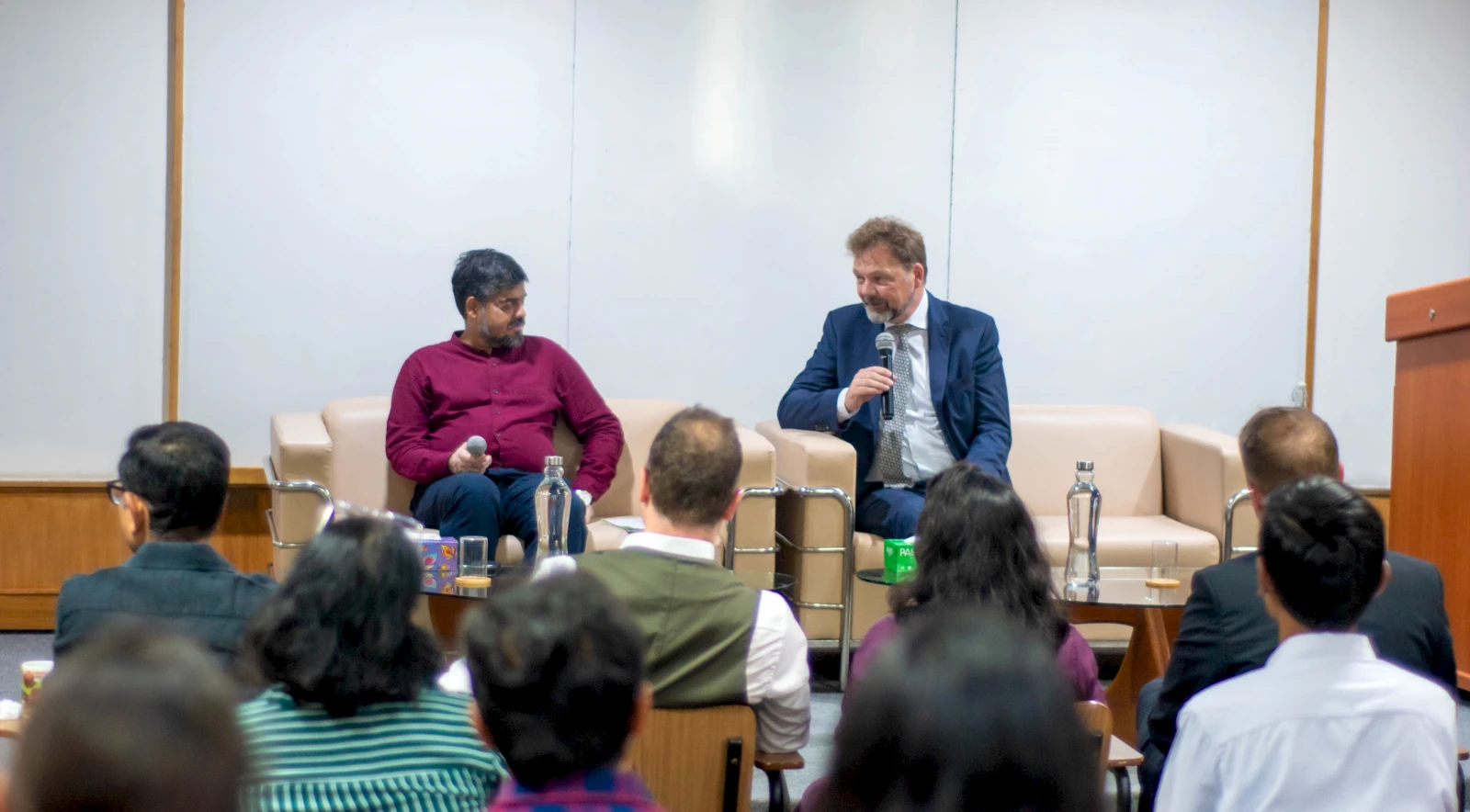Shiv Nadar University begins talk series ‘From the Diplomat’s Perch’ with German envoy
On Friday (September 22), German Ambassador to India Dr. Philipp Ackermann kicked off Shiv Nadar University’s talk series ‘From the Diplomat’s Perch’. In a discussion moderated by Dr. Siddharth Mallavarapu, Head of Department, Department of International Relations and Governance Studies (IRGS), Dr. Ackermann spoke about geopolitics, challenges faced by multilateral bodies in a multipolar world, the changing face of diplomacy, and the role of India in world politics, to a packed hall.
Commenting on the shifting paradigm of diplomacy, Dr. Ackermann said, “In the olden days, diplomacy was about big champagne receptions, being invited to nice places and interacting with intellectuals. However, things have changed. The world is now different.” Recollecting his experience being stationed for a year in the remote province of Kunduz in northern Afghanistan, the envoy said, “I have never been in such a remote place. I had to interact with leaders who didn’t understand English. Diplomacy is a crisis job. It's a job that takes you to Iraq, Mali and parts of the world that are really in difficult circumstances,” said Dr. Ackermann. Underlining the quintessential requirements of being a good diplomat, the envoy said knowledge of ground realities, being curious and extremely flexible to be on the move constantly are vital.
Pointing at the crucial role to be played by India in the coming years, he said, “Being an Indian diplomat in the future will be very interesting. Because in the coming years, India will be a major factor in world politics.”
Explaining the economic shock to Germany due to Russia’s war with Ukraine, Dr Ackermann said that the post-war model of creating European integration through interdependencies has failed.
“Germany was engaged in getting Russia in some sort of security system in Europe, because we felt that without Russia, morally, and physically, any security in Europe would be useless. Germany was completely dependent on Russia for fossil energy, but when that stopped it threw up a massive challenge. We are recalibrating our foreign policy. In this attempt, we have to open up to many countries. We have to find allies beyond the European Union,” the envoy said.
Answering a question from Dr. Rajat Kathuria, Dean, School of Humanities and Social Sciences about domestic divergence in Germany, over its support to Ukraine, the envoy explained that historical vestiges of the Cold War, especially from the eastern part of Germany don’t hold water in realpolitik.
